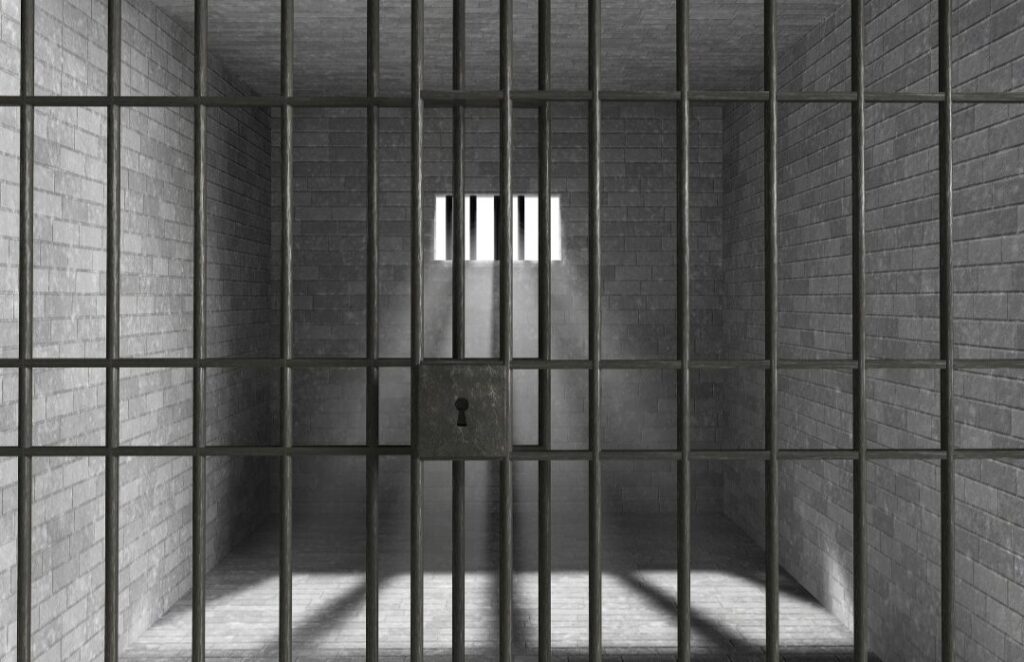The issue of voting rights for prisoners has long been a topic of debate and controversy in the United States. While some argue that prisoners should be allowed to vote as a fundamental right of citizenship, others believe that those who have committed crimes have forfeited their right to participate in the democratic process. This ongoing debate raises important questions about the purpose of incarceration, the potential for rehabilitation, and the role of civic engagement in the reintegration of prisoners into society.
Key Takeaways
- The debate over voting rights for prisoners is a contentious issue in the United States.
- The history of voting rights for prisoners in the US has been marked by exclusion and discrimination.
- Current laws and regulations regarding voting rights for prisoners vary by state and can be restrictive.
- Arguments for allowing prisoners to vote include promoting civic engagement and reducing recidivism.
- Arguments against allowing prisoners to vote include concerns about the integrity of elections and punishment for crimes committed.
The History of Voting Rights for Prisoners in the United States
The history of voting rights for prisoners in the United States is complex and varied. In the early years of the country, voting rights were often restricted to white male property owners. Over time, these restrictions were gradually lifted, and by the mid-19th century, most states had extended voting rights to all adult white males. However, African Americans and women continued to face significant barriers to voting until the passage of the 15th and 19th Amendments, respectively.
The disenfranchisement of prisoners began in the late 19th and early 20th centuries as part of a broader movement to restrict voting rights for certain groups deemed undesirable or unfit to participate in democracy. Many states passed laws that stripped prisoners of their right to vote while they were incarcerated, and some even permanently disenfranchised individuals with felony convictions. These laws disproportionately affected communities of color, who are overrepresented in the criminal justice system.
Efforts to restore voting rights for prisoners have gained traction in recent years, with several states passing legislation to allow incarcerated individuals to vote. These efforts are often driven by a recognition that denying prisoners the right to vote undermines their dignity and perpetuates a cycle of disenfranchisement and marginalization.
Current Laws and Regulations Regarding Voting Rights for Prisoners
The current laws and regulations regarding voting rights for prisoners in the United States vary widely from state to state. Some states, such as Maine and Vermont, allow prisoners to vote while they are incarcerated. Others, like Florida and Iowa, permanently disenfranchise individuals with felony convictions, even after they have completed their sentences. Most states fall somewhere in between, with varying degrees of restrictions on voting rights for prisoners.
In recent years, there has been a growing movement to restore voting rights for individuals with felony convictions. Several states have passed legislation to automatically restore voting rights to individuals upon their release from prison or completion of their sentence. These efforts are often driven by a recognition that denying individuals the right to vote perpetuates a cycle of disenfranchisement and marginalization, making it more difficult for them to reintegrate into society and participate fully in civic life.
The Arguments for Allowing Prisoners to Vote
There are several arguments in favor of allowing prisoners to vote. One of the main arguments is that voting is a fundamental right of citizenship and should not be taken away as a form of punishment. Supporters argue that denying prisoners the right to vote undermines their dignity and perpetuates a cycle of disenfranchisement and marginalization.
Another argument is that allowing prisoners to vote can promote civic engagement and reduce recidivism. Research has shown that individuals who are actively engaged in their communities are less likely to reoffend. By allowing prisoners to vote, we can encourage them to take an active role in society and give them a stake in the democratic process.
Additionally, allowing prisoners to vote can help address the racial disparities in the criminal justice system. Communities of color are disproportionately impacted by mass incarceration, and denying them the right to vote further marginalizes these communities. By allowing prisoners to vote, we can help ensure that their voices are heard and that their interests are represented in the political process.
The Arguments Against Allowing Prisoners to Vote
There are also arguments against allowing prisoners to vote. One of the main arguments is that prisoners have forfeited their right to vote by committing a crime. Supporters of this view argue that voting is a privilege that should be reserved for law-abiding citizens, and that those who have violated the law should not be allowed to participate in the democratic process.
Another argument is that allowing prisoners to vote could undermine the integrity of elections. Critics argue that prisoners may be more susceptible to coercion or manipulation by other inmates or prison staff, and that their votes could be influenced by factors unrelated to their own personal beliefs or interests.
Additionally, some argue that allowing prisoners to vote could be seen as rewarding criminal behavior. They argue that voting is a privilege that should be earned through good behavior and adherence to societal norms, and that those who have committed crimes should not be granted this privilege.
The Impact of Voting Rights on Prisoner Rehabilitation and Reintegration

The potential impact of allowing prisoners to vote on their rehabilitation and reintegration into society is a topic of much debate. Supporters argue that allowing prisoners to vote can promote civic engagement and reduce recidivism. By giving prisoners a stake in the democratic process, we can encourage them to take an active role in society and give them a sense of purpose and belonging.
Research has shown that individuals who are actively engaged in their communities are less likely to reoffend. By allowing prisoners to vote, we can help foster a sense of civic responsibility and encourage them to become productive members of society upon their release.
Additionally, allowing prisoners to vote can help address the racial disparities in the criminal justice system. Communities of color are disproportionately impacted by mass incarceration, and denying them the right to vote further marginalizes these communities. By allowing prisoners to vote, we can help ensure that their voices are heard and that their interests are represented in the political process.
Challenges Faced by Prisoners in Exercising Their Right to Vote
While there is a growing recognition of the importance of voting rights for prisoners, there are still significant challenges that prisoners face in exercising this right. One of the main challenges is limited access to information and resources. Many prisoners do not have access to the internet or other sources of information about candidates and issues, making it difficult for them to make informed decisions about who to vote for.
Additionally, there are logistical challenges to voting in prison. Many prisons do not have the necessary infrastructure or resources to facilitate voting, such as polling stations or absentee ballot programs. This can make it difficult for prisoners to exercise their right to vote, even if they are legally eligible to do so.
There are also social and cultural barriers that can make it difficult for prisoners to vote. Some prisoners may face pressure or intimidation from other inmates or prison staff if they express a desire to vote. This can create a hostile environment that discourages prisoners from exercising their right to vote.
Examples of Countries Allowing Prisoners to Vote
While the United States has been slow to grant voting rights to prisoners, there are several countries around the world that allow incarcerated individuals to vote. For example, Canada, Denmark, Finland, Ireland, and Sweden all allow prisoners to vote while they are incarcerated. These countries recognize that voting is a fundamental right of citizenship and that denying prisoners this right undermines their dignity and perpetuates a cycle of disenfranchisement and marginalization.
The impact of allowing prisoners to vote in these countries has been largely positive. Research has shown that allowing prisoners to vote can promote civic engagement and reduce recidivism. By giving prisoners a stake in the democratic process, these countries have encouraged them to take an active role in society and given them a sense of purpose and belonging.
The Role of Advocacy Groups in Promoting Voting Rights for Prisoners
Advocacy groups play a crucial role in promoting voting rights for prisoners. These groups work to raise awareness about the importance of voting rights for prisoners and advocate for policy changes at the local, state, and national levels.
One example of an advocacy group working on this issue is the Brennan Center for Justice. The Brennan Center conducts research and advocacy to promote voting rights and criminal justice reform. They have published numerous reports and studies on the impact of denying prisoners the right to vote and have worked with lawmakers to pass legislation to restore voting rights for individuals with felony convictions.
Other organizations, such as the American Civil Liberties Union (ACLU) and the NAACP Legal Defense Fund, also work on this issue. These organizations provide legal representation to individuals who have been disenfranchised and advocate for policy changes to restore voting rights for prisoners.
The Future of Voting Rights for Prisoners
The debate over voting rights for prisoners is likely to continue in the coming years. While there is a growing recognition of the importance of allowing prisoners to vote, there are still significant challenges that need to be addressed.
Policy changes at the state level, such as automatic restoration of voting rights upon release from prison or completion of a sentence, can help ensure that individuals with felony convictions are not permanently disenfranchised. Additionally, efforts to improve access to information and resources for prisoners can help overcome some of the logistical and social barriers that currently exist.
Ultimately, the future of voting rights for prisoners will depend on continued advocacy and public awareness. By raising awareness about the importance of voting rights for prisoners and advocating for policy changes, we can help ensure that all citizens have a voice in our democracy, regardless of their past mistakes.
If you’re interested in exploring more about voting rights and the best ways to engage with the political process, you might find this article on the Best Candidate website intriguing. It discusses the importance of staying informed and engaged by utilizing their innovative platform, which includes features like an inbox for personalized updates (https://bestcandidate.net/inbox/), a user-friendly Best Candidate app (https://bestcandidate.net/best-candidate-app/), and a list of their esteemed clients (https://bestcandidate.net/clients/). Discover how these tools can empower individuals, including those who may be incarcerated, to exercise their right to vote and make a meaningful impact on our democracy.






